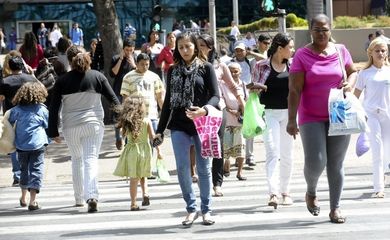First women to vote in Brazil were transgressors

Before the first Brazilian Electoral Code was established in 1932, which allowed women to vote, some transgressors stood up for this right, according to Fátima Jordão, sociologist, founder and adviser of the Patrícia Galvão Institute. She attended a panel this Tuesday (Mar. 7) convened by the São Paulo Regional Electoral Prosecution Office, as part of the International Women's Day celebrated on March 8.

As the then constitution did not prohibit the women's vote in 1928, Celina Guimarães Viana was the first woman to gain the right to vote in Brazil, in the town of Mossoró, at the Rio Grande do Norte state. "These transgressive behaviours, which are very typical of the twentieth-century feminist movement, boosted other changes. This teacher's initiative actually marks the women's suffrage," she explained.
According to Luciana de Oliveira Ramos, graduate professor and researcher at the Law School of the Getulio Vargas Foundation, the argument against the women's vote was that married women would not express a different voice from their husbands, which would cause duplication of votes.
In Brazil, women earning income were allowed to vote in 1932. In 1934, the law made voting compulsory, but still only for women who had a paid job. Only in 1946, voting became a right and an obligation to all women. In 1948, the United Nations (UN) added to the Universal Declaration of Human Rights that governments should hold periodic elections with secret ballot and gender equality.
Representation
The next feminist achievement is to ensure representativeness in politics. According to sociologist Fatima Jordão, the major obstacles women come across are within the political parties and the electoral system. In the Senate, only 17.3% of lawmakers are women. In the Chamber of Deputies, only 9.9%. At the state level, 11.4% are women in legislative assemblies and only one woman is governor. In the municipal councils, 13.3% are women and only 11.6% are mayor.
The sociologist believes that the "fight for the obvious"—equal rights between men and women—has always run into resistance. "In the history of resistances, I cannot recall another march of civilization to have found so many excuses to halt it like this one. That is why feminism is at full strength now," she said, noting the recent Women's March on Washington, which has spread the feminist agenda to the world for maintaining rights and fighting setbacks due to the prospects of the new era of US President Donald Trump. "The message is: if you do not give in, you'll have to run."
Translated by Amarílis Anchieta
Fonte: First women to vote in Brazil were transgressors


